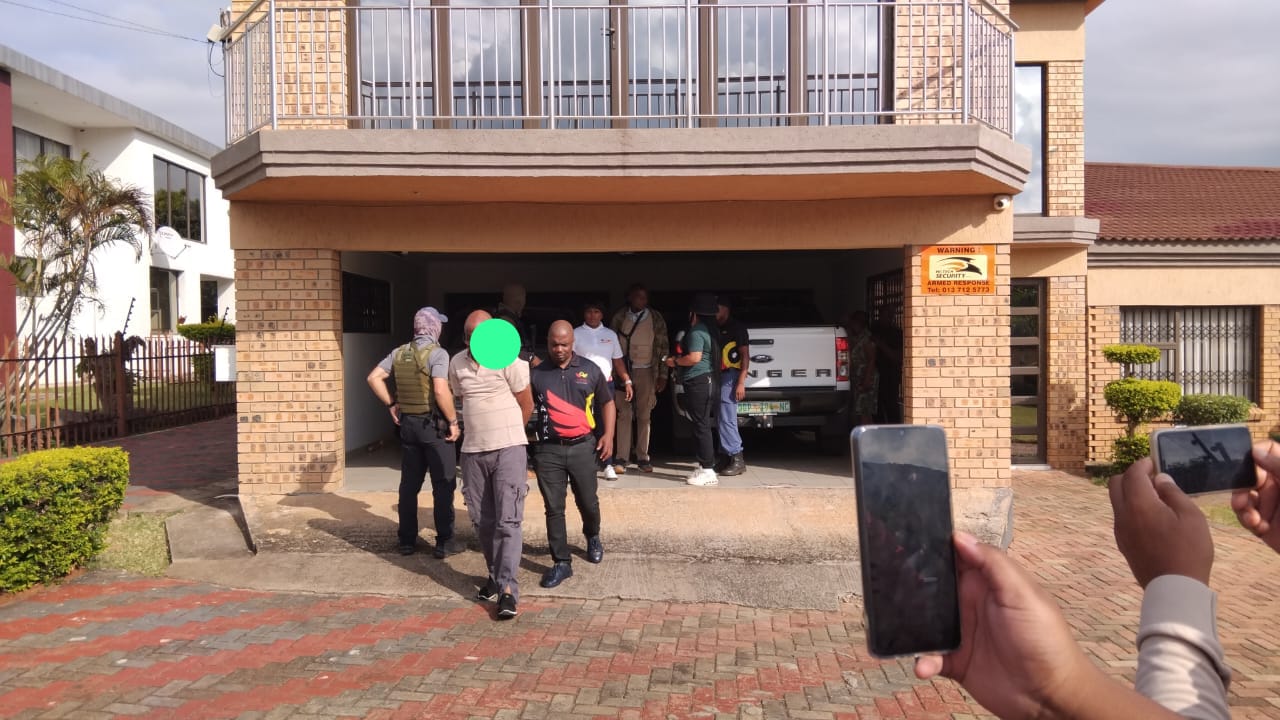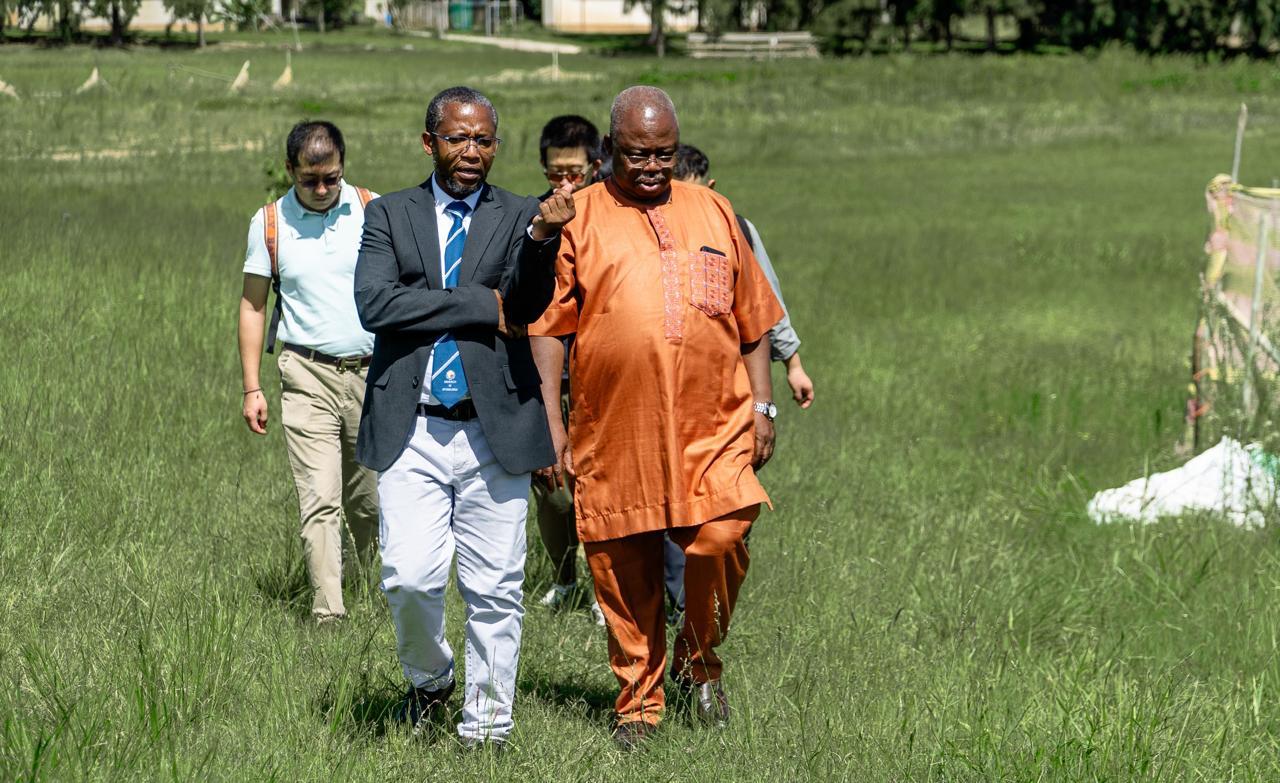-
 Hawks pounce on Mpumalanga government officials in another repairs and maintenance scandal
Hawks pounce on Mpumalanga government officials in another repairs and maintenance scandal
-
 Mulaudzi files R5bn claim against the state
Mulaudzi files R5bn claim against the state
-
 Evaluation Board reinstates disputed value on Rupert’s Mpumalanga property
Evaluation Board reinstates disputed value on Rupert’s Mpumalanga property
-
 Arqomanzi accused of delaying Lily Mine sale because it’s eyeing R141m profit from loan claim
Arqomanzi accused of delaying Lily Mine sale because it’s eyeing R141m profit from loan claim
-
 Matric cheating rocks Mpumalanga once again
Matric cheating rocks Mpumalanga once again
-
 Mvianga dismisses Royal Bafokeng’s response to his court application
Mvianga dismisses Royal Bafokeng’s response to his court application
-
 ANC denies ever raising funds from City of Matlosana
ANC denies ever raising funds from City of Matlosana
-
 ‘SA must boycott the World Cup’ – Malema
‘SA must boycott the World Cup’ – Malema
-
 Transnet loses third court battle and ordered to pay R60m to Gijima
Transnet loses third court battle and ordered to pay R60m to Gijima
-
 UMP’s ambition to position SA as a leading rice exporter
UMP’s ambition to position SA as a leading rice exporter
Dismantle organised producers of poisonous foods – human rights lawyers
Sizwe sama Yende
Human rights lawyer, Richard Spoor, has criticised the ban imposed on snack and food vendors outside schools as misdirected.
Spoor told The People’s Eye Podcast that focus should be on the syndicates that are producing poisonous foods and selling them. He likened the illegal food and snack producers to drug cartels.
He also called for harsher sentences against offenders in the South African law, not the slap on the wrist fines of about R400 to R2000. Comparatively, fines in the US amount to millions of rands for foos poisoning offences.
Spoor has been representing victims of listeriosis in the on-going class action against food and beverage company, Tiger Brands, following the deaths of about 200 people and women miscarrying or giving birth to stillborn babies since 2017.
This is the biggest listeriosis case in the world where more than 1 500 people were infected by eating cold meat from the Tiger Brands factory in Polokwane.
Most provinces have been hit with reports of school children being hospitalised for poisoning after eating snacks bought from spaza shops.
The national Department of Health found that an organophosphate called Terfubos was found in snacks that killed six children in Naledi, Gauteng, at the end of last month. Terbufos is a highly hazardous pesticide registered in South Africa for agricultural use, but it is commonly and illegally sold as a street pesticide for domestic use.
Many provinces such as Limpopo and Gauteng have since banned vendors selling outside schools. These are mostly women who have been historically selling snacks, sweets, fat cakes and kotas.
Gauteng has recorded 23 deaths from food poisoning, while there has been one in Limpopo even though several hospital admissions were reported.
The Limpopo education department has indicated that it intended lifting the ban but vendors needed to meet certain requirements such as signing a service level agreement with the school-governing body, and having a certificate of acceptability from the Department of Health affirming compliance with hygiene standards for food premises under the Foodstuffs, Cosmetics and Disinfectants Act, 1972.
Vendors would also be required to stock and sell items that were within the nutritional guidelines stipulated in the National School Nutrition Programme for tuck shop operators, promoting healthy food choices such as fresh fruits, low-sugar beverages, and other nutritionally balanced items.
Spoor said that government needed to investigate and get to the bottom of the matters as vendors and spaza shop owners were not responsible for introducing poison into foods.
“There are major criminal organisations that are importing these food products and packaging them falsely…packaging them under popular labels and selling and distributing this. I mean, this is really organised crime. It's like the people who sell fake Adidas sneakers and copy big brands. There are people who are doing this in the context of food,” he said.
“It's not the spaza shop owners that introduced these poisons into the chips. Somebody assembled that. Somebody got the raw product from somewhere. Who is that? Where did that come from ? You know, behind these cases of kids dying there are real criminals,” he said.
Spoor said that the National Institute for Communicable Diseases of South Africa (NICD) did a fabulous job in mobilising society and testing during the listeriosis outbreak.
“But, for the kids who are dying on a weekly basis as a result of consuming fake and contaminated foods, where is the coherent response? There is no response.”
Spoor said that the proliferation of online food sales was creating another chaos in terms of identifying the source and controlling distribution.
He said that the country had many departments and laws regarding food safety but they were all operating in an uncoordinated fashion. Spoor said that there was also lack of enforcement of food safety – a responsibility left in the hands of municipalities which had been found wanting in delivering services.
“Prosecutions for contravention of food safety laws in this country are virtually not existent and hardly ever happen. One of the recommendations that come through here is to strengthen and empower health inspectors to give them the powers that policemen enjoy. Make them peace officers, and give them the right to arrest people, close a place and confiscate (poisonous food) and initiate prosecutions,” Spoor said.

